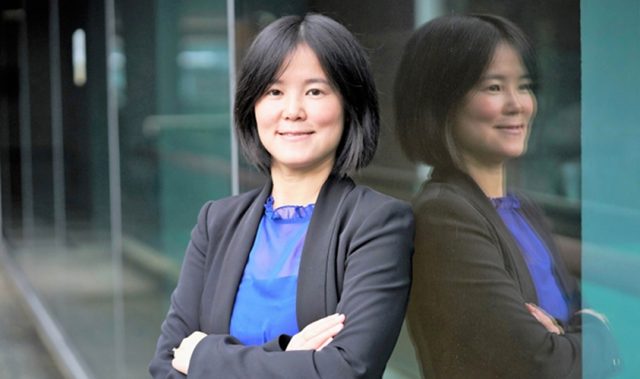
AsianScientist (Feb. 3, 2014) – By Prime Sarmiento – If the term “family business” conjures up images of your local mom-and-pop store, you may be surprised at the huge part that family-owned companies play in the world economy; They account for more than a third of Fortune 500 companies, and half of the 1,204 unique firms that make up the S&P 1500 index.
Most companies are subject to the “agency problem,” which arises from a conflict of interest between the company’s management and its shareholders. The manager, serving as an agent for the shareholders, is expected to make decisions that will maximise shareholder wealth. Managers, however, also have an interest in maximising their own wealth.
This problem is exacerbated in family-owned businesses, which have an incentive to promote family interests.
“To ensure that family members do not take advantage of other shareholders, it is important to have good monitoring and control in family firms,” says Associate Professor Chen Xia of the Singapore Management University (SMU) School of Accountancy, who studies corporate governance and financial management of family-owned businesses.
Professor Chen’s interest in family firms began while she was pursuing her doctorate at the University of Chicago. It was there that she became aware of the importance of family-owned businesses not only to corporate America but also to the country’s entire economy. Nearly 90 percent of all business enterprises in North America are family-owned, and family businesses also account for half of the United States gross domestic product (GDP) and employ more than half of its labour force.
Professor Chen says that her current studies focus on American family-owned firms because most of them are publicly traded, making it easier for her to obtain data. This kind of transparency is not available for Asian family firms.
“Asian family-owned firms tend to be under tighter control of the family, the ownership structure tends to be more complicated, the financial reporting may be more opaque,” she says.
The case for separating family ownership from management
One of the worst manifestations of the agency problem is the failure to replace a poorly performing chief executive officer (CEO). CEO turnover decisions are crucial because they affect a firm’s operating, investing and financing activities.
If a CEO who is not a family member (a “professional” CEO) performs poorly, family members tend to step in and replace him or her. But these dynamics change once a family member becomes the CEO.
“If a family CEO is doing a poor job, he or she may not get removed quickly because of family protection and interest. This can be problematic,” Professor Chen explains.
In a recent study, Professor Chen, together with her long-time collaborators Cheng Qiang, Professor of Accounting at SMU, and Zhonglan Dai, Associate Professor at the University of Texas in Dallas, examined the impact of a founding family’s presence on CEO turnover decisions. They did this by measuring CEO turnover-performance sensitivity, or the correlation between CEO turnover and performance. In other words, given his or her poor performance, how likely is the CEO to be removed?
“If CEO turnover-performance sensitivity is low, that is, whether a CEO will be removed or not does not depend on the firm performance, there may be something wrong with the firm’s governance because incapable CEOs are left too long on the position,” Professor Chen says.
Professor Chen and her fellow researchers collated data from 1,865 firms in the S&P 1500 Index between 1996 and 2005, using announcements from the business news aggregator website Factiva to identify CEO turnovers and understand the reasons behind them. They then performed statistical analyses to determine if CEO turnover-performance sensitivity varied across firm types. They found that family firms managed by professional CEOs indeed showed higher CEO turnover-performance sensitivity than family firms managed by family members.
“Professional CEOs in family firms have higher CEO turnover-performance sensitivity because of family monitoring,” Professor Chen said.
In earlier work, Professor Chen and her collaborators also found that American family firms with professional CEOs were less subject to agency problems than even non-family firms, due to the founding family’s effective monitoring of management.
In summary, their research showed that family ownership, when separated from management, can ease agency problems. But when family members are combined with management (through the appointment of a family CEO, for example), this can aggravate agency problems.
Developing incentives to encourage good corporate governance
Although experts believe the agency problem cannot be completely eliminated, most companies try to alleviate it by implementing measures that encourage managers to serve the shareholders’ best interests. These include incentives such as performance-based compensation to encourage managers to maximise profit. Shareholders can also directly influence managers, and have the power to fire a non-performing manager.
According to Professor Chen, however, such solutions may not necessarily apply to family firms.
“Family firms are quite different from other firms. Family members own significant stake, are in tight control of the firms, and have long investment horizons. These features all have important implications for firm decisions and performance,” she explains.
Using her insights into the unique workings of family firms, Professor Chen hopes to develop incentives and effective monitoring systems to address the corporate governance challenges faced by these firms.
Asian Scientist Magazine is a media partner of the Singapore Management University Office of Research.
——
Copyright: SMU Office of Research. Read the original article here; Photo: Darren Yau
Disclaimer: This article does not necessarily reflect the views of AsianScientist or its staff.












